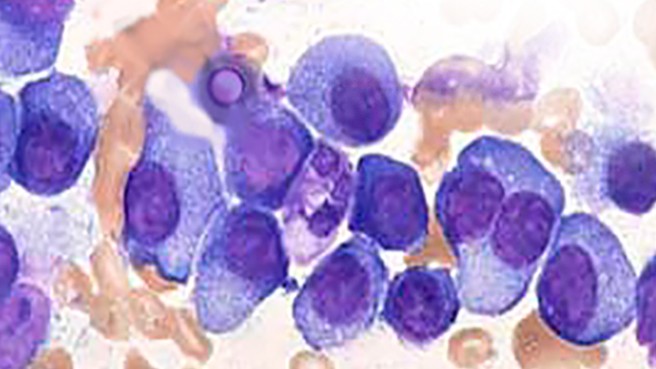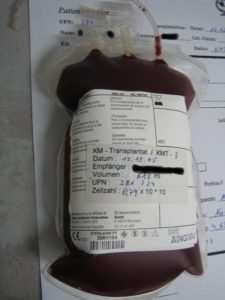
Recently Diagnosed or Relapsed? Stop Looking For a Miracle Cure, and Use Evidence-Based Therapies To Enhance Your Treatment and Prolong Your Remission
Multiple Myeloma an incurable disease, but I have spent the last 25 years in remission using a blend of conventional oncology and evidence-based nutrition, supplementation, and lifestyle therapies from peer-reviewed studies that your oncologist probably hasn't told you about.
Click the orange button to the right to learn more about what you can start doing today.
- You are here:
- Home »
- Blog »
- Multiple Myeloma »
- Myeloma Auto Stem Cell Transplant- SARS? MERS? H1N1? Covid-19?
Myeloma Auto Stem Cell Transplant- SARS? MERS? H1N1? Covid-19?

“hematopoietic stem cell transplantation (HSCT) survivors are at risk of developing long-term complications, such as endocrinopathies, musculoskeletal disorders, cardiopulmonary compromise and subsequent malignancies”
I was diagnosed with multiple myeloma in early 1994. I underwent aggressive therapies including an autologous stem cell transplant in 12/95. Over the years I have read many oncologists stating unequivocally that ASCT patients fully recover from this aggressive procedure within 6-12 months. Has my immune system fully healed?
According to Memorial Sloan-Kettering “The time it takes to recover after a transplant varies. It usually takes about 3 months, but it’s also normal to take more or less time….It usually takes 3 to 12 months for your immune system to recover from your transplant.”
I underwent my ASCT more than 25 years ago. I’m fine…right??? Wrong…
When the coronavirus aka Covid-19 became a worldwide pandemic, I began researching my risks. I mean, we are living in the time of
- severe acute respiratory syndrome (SARS),
- Middle East respiratory syndrome (MERS).
- H1N1
- Not to mention different influenza virus’ annually.
According to the articles linked and excerpted below, multiple myeloma patients who undergo an autologous stem cell transplant may have two serious immune system problems:
- immune system has aged about 30 years and
- their bone marrow has has been permanently damaged
Further, according to the second article below, I am in increased risk of developing long-term complications such as:
- endocrinopathies,
- musculoskeletal disorders,
- cardiopulmonary compromise and
- subsequent malignancies”
Because this post is about my immune system, I am going to set aside my heart, endocrine (testosterone), and muscle/bone problems for another blog post. However, the issues of “subsequent malignancies” points to severe problems with my bone marrow. And if my bone marrow isn’t working properly, I think I’m in real trouble if I’m exposed to one of the serious influenza, respiratory, virus, etc. illnesses.
Unfortunately, the study below that identifies the many long-term and late stage health problems caused by ASCT does not tell me what my risks are regarding the age of pandemics…
The bottom line is that I don’t know the long-term immune system risks of ASCT survivors.
Have you had an ASCT? Have you had and received from SARS, MERS, H1N1, Covid-19, etc.? What is your immune health like?
Scroll down the page to ask a question or post a comment. I will reply to you ASAP.
Thank you,
David Emerson
- MM Survivor
- MM Cancer Coach
- Director PeopleBeatingCancer
Recommended Reading:
- Multiple Myeloma-Heart Failure from Autologous Stem Cell Transplant
- Multiple Myeloma Induction- RVD W/ or W/O ASCT?
- Multiple Myeloma Pre-habilitation- Enhance Efficacy, Minimize Toxicity
- Multiple Myeloma Diagnosis – Cure vs. Control Debate
Autologous Stem Cell Transplant May Age Immune Cells as Much as 30 Years
“University of North Carolina (UNC) Lineberger Comprehensive Cancer Center researchers, by tracking p16INK4a, a molecular marker that has been shown to increase in white blood cells as people age, have uncovered clues suggesting that stem cell transplant is linked to a marked increase in the “molecular age” of these immune cells in a group of patients with hematologic malignancies…
Many oncologists would not be surprised by the finding that stem cell transplant accelerates aspects of aging,..
“We know that years after a curative transplant, stem cell transplant survivors are at increased risk for blood problems that can occur with aging, such as
- reduced immunity,
- increased risk for bone marrow failure, and
- increased risk of blood cancers.
What is important about this work, however, is that it allows us to quantify the effect of stem cell transplant on molecular age.”
Long-term health impacts of hematopoietic stem cell transplantation inform recommendations for follow-up
“However, hematopoietic stem cell transplantation (HSCT) survivors are at risk of developing long-term complications, such as
- endocrinopathies,
- musculoskeletal disorders,
- cardiopulmonary compromise and
- subsequent malignancies.
These complications have a direct impact on the morbidity and mortality experienced by HSCT survivors.
- Two-thirds of HSCT survivors (66%) develop at least one chronic health condition;
- while a fifth (20%) develop severe or life-threatening conditions.
HSCT patients who have survived for at least 5 years post-transplantation are at a fourfold to ninefold increased risk of late mortality for as long as 30 years from HSCT, producing an estimated 30% lower life expectancy compared with the general population.
The high burden of morbidity experienced by HSCT survivors makes it critically important that there is standardized follow-up of HSCT survivors at high risk for post-HSCT complications…
Late mortality
The high burden of morbidity carried by HSCT recipients can result in premature death. Several studies have examined late mortality in patients undergoing allogeneic or autologous HSCT and are summarized here.
Late mortality was evaluated in a cohort of 854 individuals who had survived for 2 or more years after autologous HSCT for hematologic malignancies [2]. The OS was 68.8% at 10 years (Figure 5A) and the cohort was at a 13-fold increased risk for premature death compared with the general population. Relapse of primary disease (56%) and SMNs (25%) were leading causes of premature death…”


